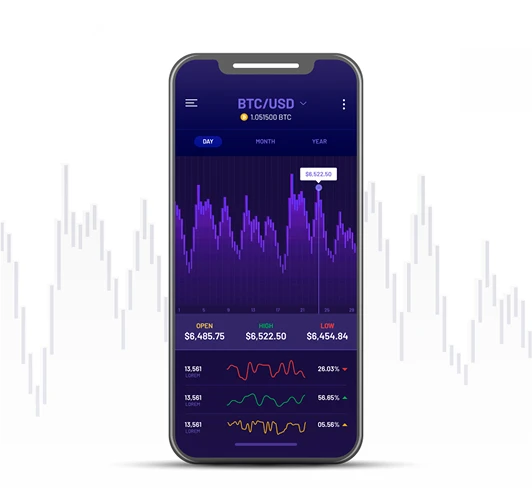Multi-tier adaptive modules within Rdzeń Luxerise analyse ongoing behavioural shifts, converting erratic responses into structured analytical balance. Each calibration layer refines variable input into proportionate alignment, enabling responsive model adaptation. Recognised rhythm sequences reveal repetitive tendencies, maintaining precision throughout fluctuating market dynamics.
Real-time evaluation across Rdzeń Luxerise identifies gaps between projected and observed behavioural flow, adjusting analytical weighting to restore equilibrium. Continuous recalibration converts irregular responses into coherent interpretation, ensuring behavioural mapping reflects authentic market movement.
Algorithmic verification within Rdzeń Luxerise confirms predictive reliability by comparing new behavioural constructs with validated data archives. Sequential validation preserves proportional integrity across evolving analytical cycles, sustaining consistent interpretation and transparent awareness during accelerated market shifts.

Rdzeń Luxerise applies multi-temporal analysis to link current analytical observations with validated historical references. Recurring motion patterns are identified and assessed against previous data cycles, maintaining interpretive uniformity through transitional conditions. This reflective sequencing reinforces analytical steadiness and preserves balanced comprehension amid evolving market behaviour.

Adaptive recalibration inside Rdzeń Luxerise analyses predictive development through layered evaluation stages. Each iteration measures forecasted outcomes against verified performance records, refining proportional logic with every correction cycle. This continuous refinement enhances analytical dependability and ensures insights remain aligned with established behavioural patterns.

Rdzeń Luxerise aligns live analytical processing with validated historical datasets to ensure precision during evolving conditions. Each adaptive cycle cross-checks predictive outcomes against prior behavioural models, maintaining balanced proportion across fluctuating environments. This structured validation process reinforces interpretive reliability while operating entirely independent of exchange systems or direct trading activity.
Rdzeń Luxerise performs structured multi-phase analysis to evaluate predictive precision across evolving time sequences. Automated recalibration merges historical records with ongoing computation, ensuring stable interpretation and balanced forecasting outcomes. This consistent comparison preserves analytical harmony and enhances long-term predictive dependability within variable market activity.

Rdzeń Luxerise enables effortless duplication of proven trading methodologies using adaptive automation. Algorithmic or expert-generated signals are mirrored across connected accounts, preserving accuracy in timing, allocation, and structural flow. This coordinated framework maintains disciplined performance and ensures consistent behavioural alignment across every replicated strategy.
Each replicated strategy within Rdzeń Luxerise is continuously monitored to ensure accuracy and alignment. Automated validation compares mirrored actions with their original models, maintaining consistency and analytical balance. Real-time adjustment mechanisms allow smooth adaptation to shifting market dynamics, supporting uninterrupted and precise replication across all operations.
Rdzeń Luxerise applies advanced control systems to guarantee accurate and secure replication. Every mirrored sequence is verified for precision, preserving analytical structure and intent. Layered encryption and regulated data handling protect account integrity, ensuring dependable replication while reducing operational risks across synchronised environments.
Self-adjusting mechanisms within Rdzeń Luxerise analyse prior performance, detecting anomalies and refining algorithmic weight before deviation occurs. Each learning cycle rebalances predictive models to preserve consistency, keeping analytical logic aligned and responsive across all evolving data sequences.
Filtering intelligence across Rdzeń Luxerise differentiates genuine directional patterns from short-term irregularities. By eliminating transient noise, each evaluation captures accurate market rhythm, maintaining steady analytical focus and reliable interpretation throughout every assessment phase.
Analytical processing within Rdzeń Luxerise compares anticipated movement with verified outcomes, refining data proportion to minimise variance. This coordinated recalibration strengthens analytical alignment and ensures coherence between prediction and observed market activity.
Rdzeń Luxerise maintains uninterrupted validation across sequential intervals, synchronising real-time analysis with historical benchmarks. This adaptive process secures analytical steadiness and enables consistent responsiveness under rapidly shifting data conditions.
Feedback oriented architecture in Rdzeń Luxerise integrates adaptive learning with systematic verification, refining precision through each iteration. Every recalibrated cycle enhances durability, reduces interpretive drift, and reinforces dependable predictive consistency across all analytical operations.
Refined analytical layers in Rdzeń Luxerise uncover subtle behavioural patterns concealed within volatile market activity. Minor fluctuations, often invisible through standard analysis, are captured via multi-tier calibration that converts dispersed signals into structured understanding. Each recalibration enhances interpretive clarity and maintains balanced rhythm amid rapid transitions.
The adaptive framework of Rdzeń Luxerise transforms every evaluation phase into an evolving learning reference. Contextual feedback aligns previous insights with live computation, reinforcing predictive continuity and improving the precision of analytical responses. Each iteration strengthens correlation accuracy, transforming accumulated analysis into refined strategic awareness.
Ongoing comparison within Rdzeń Luxerise connects live behavioural readings to verified historical data structures. Each refinement deepens analytical reliability and sustains interpretive stability. This continuous evolution builds a consistent foundation of clarity and balance across high-speed and dynamic data conditions.

Adaptive automation within Rdzeń Luxerise provides constant tracking of evolving market activity. Predictive modelling interprets micro-level fluctuations in data streams, turning unstable movement into structured analytical flow. Each observation cycle maintains equilibrium, ensuring consistent comprehension across varying market intensities.
Live coordination across Rdzeń Luxerise manages continuous information flow, balancing analytical precision with long-term stability. Instant recalibration responds to rapid environmental shifts, reshaping volatile activity into coherent interpretation. This persistent process sustains analytical consistency and proportional clarity throughout changing trading dynamics.
Coordinated analytical mechanisms within Rdzeń Luxerise merge multiple behavioural data flows into a single structured overview. Sequential refinement filters residual irregularities, preserving continuous directional awareness. This integrated process maintains analytical balance even during extended volatility and intricate market transitions.
Long-term monitoring across Rdzeń Luxerise enhances analytical precision through uninterrupted validation. Predictive recalibration fine-tunes each interpretive cycle to match evolving dynamics, maintaining stability and dependable accuracy throughout variable trading phases. The framework ensures steady perception across all active analytical environments.
The adaptive interface of Rdzeń Luxerise organises complex datasets into clear, accessible visuals. Structured formatting turns layered information into simplified interpretation, offering smooth navigation and effortless analytical engagement across multiple indicators.
Interactive display functions in Rdzeń Luxerise transform dense analytical feedback into fluid visual sequences. Real-time adaptation captures shifting market behaviour with clarity, preserving consistent understanding and visual balance across dynamic data conditions.

Continuous computation within Rdzeń Luxerise evaluates market movement in real time, recalibrating analytical rhythm to preserve structural balance. Predictive modelling analyses behavioural variations and corrects deviations instantly, ensuring steady precision through ongoing market fluctuation.
Layered calibration within Rdzeń Luxerise identifies inconsistencies between forecast models and live results, restoring proportional order through adaptive adjustment. Persistent monitoring filters redundant noise, maintaining interpretive clarity and rhythm through shifting analytical conditions.
Comparative modulation across Rdzeń Luxerise aligns predictive logic with validated performance data. Automated coordination detects divergence early and re-establishes equilibrium before interpretive distortion develops. This consistent refinement process preserves accuracy and coherence throughout all analytical operations.
Rapid analytical computation within Rdzeń Luxerise processes real-time market variations, converting ongoing data streams into structured interpretation. Machine learning models detect nuanced behavioural changes, transforming micro-movements into coherent analytical rhythm. Each recalibrated layer sustains precision and balance across evolving trading conditions.
Adaptive automation across Rdzeń Luxerise converts instant sentiment changes into measurable analytical flow. Early detection mechanisms refine interpretive parameters, maintaining reliable accuracy through fluctuating environments. Each recalibration harmonises analytical perception with validated data progression, supporting clarity and stability.
Layered processing within Rdzeń Luxerise ensures continuous oversight through iterative recalibration. Real-time verification integrates live data evaluation with contextual analysis, delivering consistent interpretation that remains entirely detached from execution activity or exchange dependence.

Intelligent analysis within Rdzeń Luxerise examines intricate behavioural dynamics to generate structured analytical depth. Each processing layer identifies relational movement, shaping balanced interpretive rhythm across evolving market conditions. Irregular fluctuations are refined into coherent logic, maintaining analytical clarity through variable transitions.
Continuous optimisation enables Rdzeń Luxerise to refine its analytical network through iterative recalibration. Dynamic weighting enhances responsiveness, filtering distortion while preserving structural balance and proportional accuracy. Each adjustment strengthens interpretive reliability across a broad range of analytical environments.
Predictive modelling embedded in Rdzeń Luxerise connects validated historical behaviour with current data flow. Analytical precision evolves progressively, transforming accumulated evaluation into consistent, evidence-based interpretation and measurable accuracy.

Rdzeń Luxerise preserves analytical integrity by distinguishing objective computation from interpretive bias. Each processing layer prioritises contextual precision, building structured awareness through validated sequencing rather than speculative direction. Predictive modulation maintains interpretive rhythm while keeping analysis independent of decision influence.
Verification mechanisms within Rdzeń Luxerise ensure data coherence before generating conclusions. Every evaluation concentrates on structural relationships and proportional logic, supporting balanced neutrality and sustaining analytical independence throughout all operational stages.
Behavioural intelligence within Rdzeń Luxerise observes unified trader responses throughout variable market activity. Machine learning measures reaction intensity and pacing, converting dispersed behavioural signals into structured interpretation that captures collective momentum patterns.
Analytical computation inside Rdzeń Luxerise identifies correlated behavioural formations during high-volatility periods. Layered processing maps participation density and synchronised rhythm, transforming crowd-driven reactions into measurable analytical flow for stable comprehension.
Algorithmic processing within Rdzeń Luxerise converts reactive market fluctuations into structured analytical order without imposing directional bias. Each computational layer filters volatility, restoring equilibrium and sustaining consistent interpretive clarity throughout uncertain trading phases.
Adaptive modulation within Rdzeń Luxerise evaluates concentrated shifts in group behaviour, restoring rhythmic harmony through continuous recalibration. Each refinement enhances collective pattern understanding and maintains analytical clarity throughout evolving market conditions.
Adaptive recalibration inside Rdzeń Luxerise maintains analytical accuracy by aligning forecast models with real-time market performance. Predictive modules measure variation between projected expectations and actual outcomes, converting inconsistencies into proportional alignment. This ongoing validation process ensures interpretive steadiness and dependable precision across dynamic conditions.
Comparative evaluation within Rdzeń Luxerise integrates predictive mapping with verified performance insights. Each refinement sequence balances analytical rhythm with observed data, preserving coherence and clarity throughout evolving market fluctuations.